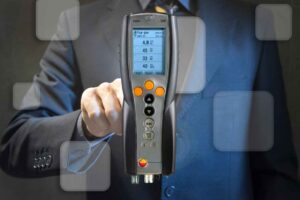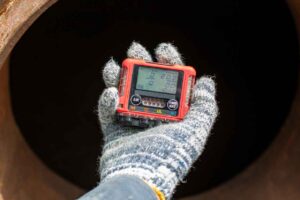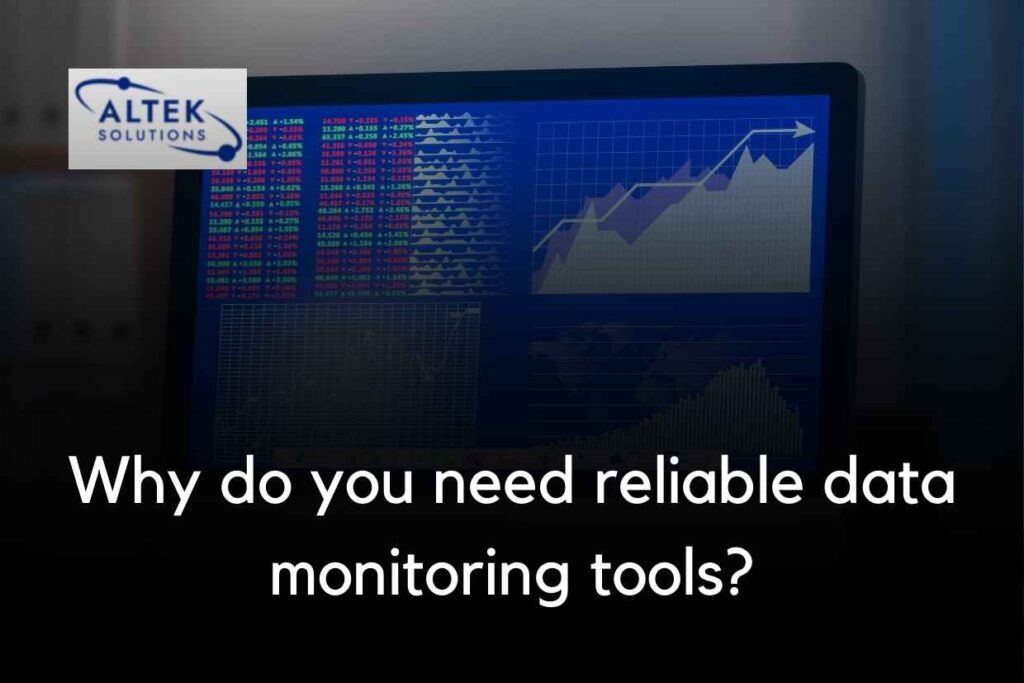It’s no laughing matter when it comes to gas analysis in industrial fabrications. Gas analyzers are indiscriminately more important in all operation systems, whether for process control, safety, or emission. However, seeing so many varieties of gas analyzers can make you feel like you’re playing a game of roulette.
However, it is the dew point that affects gas analyzer measurements. It is the air humidity which may cause some discrepancy in your readings as well if you are not alerted. Grab a cup of your favourite beverage and open the doors to the gas analyzer universe. This time will be dedicated to introducing the critical things to check in order to choose the perfect gas analyzer for you.
Identifying Your Target Gases.
Before beginning with the gas analyzers, you have to identify the kind of gases you are dealing with. It is like finding the centre of a moving target while blindfolding, which is not a very effective strategy. Are you working with carbon monoxide, volatile organic compounds, or something more exotic, maybe an uncommon gas that only lives in the bowels of a completely different dimension?
The first step is identifying the target gases and their safe level limits. But wait, there’s more! It would help if you also kept in mind interfering gases and sample types. Well, nobody wants to be the person who, by mistake, considers methane a harmless gas burp.
Actionable Tip: If you do not have a doctoral degree in gas chromatography, seeking assistance from a gas analysis expert is a good idea. They can provide the correct input of gases and concentration ranges that may fit your specific needs, ensuring that you will not be chasing phantoms or toxins.
People Also Ask:
1. How do I identify the gases in my industrial process?
It’s not relatively as straightforward as merely smelling the air and saying, ‘Oh yes, that’s definitely methane’! You will have to study your processes extensively, identify all the possible emission sources, and possibly know how to use some chemical tables.
2. What are the effects of humidity in the gas analysis?
Humidity – the primary enemy of gas analyzers all over the world. It all depends on the particular application and analyzer kind. It can cause issues like external condensation and inaccurate readings.
Selecting the Right Gas Analyzer.

Knowing which gases are obtained, it is time to pick the best sensor to tackle the situation. Is it like the highest-level version of hide-and-seek, finding the suitable sensor hiding in the market?
Gas analyzers provide a wide selection of sensors, some more powerful than others. You have electrochemical sensors, infrared sensors, mass spectrometers, and more. There are tons of different sensors to pick from, but it’s not food. You’ll feel like you’re up in a buffet eating the air.
Sensor choice depends on the concentration of the gas you want to measure and how accurate and fast the responses should be, among other factors. For example, if you look for sensors that can react in the shortest amount of time, you could pick electrochemical sensors that might suit your needs. However, if dealing with a much more complex gaseous blend is the case, then a mass spectrometer may be the most appropriate method.
Humidity is no exception! Some gas analyzers have added features designed to control or correct humidity levels. This humidity control feature will minimize your chances of redoing the reading due to inaccuracies.
Actionable Tip: Perform an in-depth study of the types of sensors available on the market and check whether they can detect your focus gas. Talk to producers, application specialists, or maybe that crazy lab technician next door you always hear talking about the latest sensor technologies. They may assist you in picking up the suitable sensor and block out any possible sensor disasters.
People Also Ask:
1. What is the best gas sensor technology?
My response is that this choice would depend on your personal preference and the gases you are analyzing. Although sensors have specific strengths and weaknesses, choosing the one that meets your needs and is the best for you is essential.
2. What is the role of sensors in gas analysis, and how does the choice of sensors correlate with the performance of the gas analyzer?
Sensor selection could have a crucial effect on gas analyzer performance. If you select a sensor in error, you could have to make decisions based on incorrect readings, sluggish response time, or even premature sensor failures. It is like trying to use a hammer to conduct brain surgery, which is probably a tool but an incorrect tool for the job.
Considering Operating Environment and Sample Conditions.
Now that you have identified the gases affecting you and picked the suitable sensor technology type, that’s great! However, several factors must be considered. Your operational environment and circumstances may make or break your analysing procedure.
Issues such as temperature, pressure, flow rate, and the composition of the dust or microorganisms can all affect the performance of gas analyzers. For example, an attempt to run a race with a weighted vest, chainsaw, and high-stepping on pavements.
Choose an appropriate analyzer that can reach temperature capacity and pressure in your industrial area. Nobody wants an analyzer that cannot analyze gas samples after the analyzer itself gets warm.
When this is taken into consideration, the same story can be told about humidity, too. Some analyzers could be more sensitive to humidity, and sample conditioning may be altered when humidity is a factor, so pick an excellent analyzer to accommodate changes.
Actionable Tip: As the strategic aspect is complex, pay attention to your operating environment and the sample characteristics. Think about playing around with the changes in the temperatures and pressure or the exposure to particulates. Pick an analyzer that manages to function under these circumstances and will not sweat whatever happens.
People Also Ask:
1. Can a gas analyzer operate in high temperatures?
Short answer? It depends. Tough reactivity in extreme temperatures is a feature of some gas analyzers, but some devices probably don’t have this feature. It is like asking a snowman to survive a heat wave.
2. How does dust affect gas analysis?
Dust and particulates are some of the significant problems that gas analyzers experience. They jam filters, confuse sensors, and make the analyzer’s life miserable. It is not an easy task. It would certainly be like breathing through a storm of sand.
Data Acquisition and Connectivity Needs.

Okay, gas is settled, the sensor is picked, and performance conditions are covered. But wait, there’s more! Your data acquisition and connectivity needs must also be considered.
In-built monitoring capabilities, real-time data logging, and integration with process control systems are all important factors that must be considered. For the sake of honesty, no one wants to be tasked with recording those gas readings alone while the rest of the crew is enjoying their free time.
Some gas analyzers even include the ability to integrate with humidity loggers so that you can assess the environmental condition as a whole. It is like having a personal assistant for gas analysis.
Actionable Tip: Select an analyzer possessing data-obtaining capabilities to meet your unique requirements. Whether you need real-time monitoring, data logging, or seamless integration with your process control systems, make sure your gas analyzer can deliver.
People Also Ask:
1. Do I really need a gas monitoring device with real-time data transmission?
As for that, it all depends on your desired features. In this case, you might want to introduce real-time monitoring to a critical process that could lead to serious disaster with the slightest deviations of measurements. However, periodic data logging is enough if you do not work with those vital processes.
2. What are the ways you can connect a gas analyzer to a process control system?
This is where things can get a bit technical, but try to be patient. One of the various features of modern gas analyzers is the available connectivity options, such as Ethernet, serial, or wireless technology. It is like having a translator to assist your process control system and analyzer in communicating with each other.
Maintenance and Calibration Considerations.
Alright, folks. We’ve covered a lot of ground so far, but we need to discuss one more crucial aspect: maintenance and calibration. Come on, who would deny it? Even the most modern and accurate gas analyzers won’t cope with the situation if they are not maintained and calibrated on time.
Intermittent maintenance plays a crucial role in ensuring that the data obtained as a result of gas analysis is accurate and reliable. Also, don’t forget the calibration process which is less glamorous but incredibly important. The calibration frequencies are dependent on the analyzer type. In order to make sure that the analyzer is reading accurately, it is necessary to maintain them.
Actionable Tip: Take into account the maintenance demands and calibration expenses when making your choice between various gas analyzers. Additionally, don’t let those unsuspected expenses catch up with you later. Proper maintenance and calibration are investments in accuracy and safety; regard them likewise.
People Also Ask
1. How frequently do I need to calibrate the gas analyzers?
Unfortunately, it is not as clear-cut as one might wish. Factors such as the type of analyzer, device deployment, and manufacturer’s application guidelines will also be taken into account. Not all analyzers require calibration once every few months. Some can go a year or even long years without recalibration.
2. What is involved in gas analyzer maintenance?
Let’s tighten up the seats because things might get a little deeper here. Gas analyzer maintenance may involve filter replacement, sensor cleaning, leak testing, and other diagnostics. It’s as if taking your analyzer through the entire cycle in the spa, but instead, these are the sensors and checks on such overflows.
Products and Services.

Now, while we will round up our overview of choosing the gas analyzers, we would like to add a bit about the gas analyzer products and services offered by Altex Solutions. We are committed to putting the best probes on the market, coupled with the latest sensor technologies, with the experts who will help with your calibration and maintenance services.
Without talking much, we prefer to let our quality gas analysis units, such as Testo 300, Testo 310, and Testo30/40/50, speak for themselves. They can handle any other challenge you give them.
Conclusion.
Now, we are done, people. This is a complete guide on how to manoeuvre gas analyzers. Though the decision on which analyzer is the most suitable for your industrial process shouldn’t be neglected, this doesn’t mean that the choice of device should be boring. With a suitable gas analyzer, you won’t have to worry about inaccurate readings and unsafe operations.





